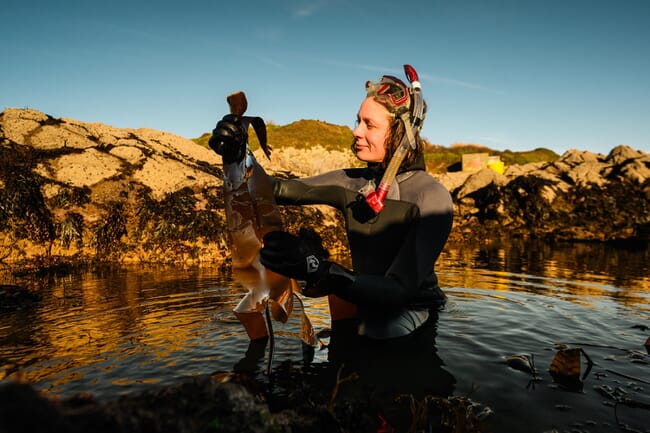
Cat Wilding, a senior research assistant at the Marine Biological Association, collecting kelp specimens © Marine Biological Association
While there has been much research on coral, mangrove and seagrass restoration, far less attention has been given to kelp forests, despite their huge ecological and socioeconomic importance. Losses or shifts in the structure of these kelp forests could have significant consequences for marine ecosystems and the services they provide to coastal communities.
Considering this, the ground-breaking restoration project - led by Dr Dan Smale and Cat Wilding - aims to restore four species of kelp native to the UK. The project will test the use of "green gravel", a pioneering restoration tool which has already shown its potential for kelp forest restoration in Portugal and Australia.
The researchers extracted kelp spores from coastal locations in Devon and Teeside, which were then seeded onto local gravel substrate, allowing the kelp to grow under optimal lab conditions. Once kelp plants have grown large enough, the gravel and kelp can be planted out at sea, where they continue to grow.
This seeding technique is cheap, simple, and does not require scuba diving or highly trained field workers. Additionally, it can be up-scaled to treat large areas, and can be used to introduce genes from more resilient kelp populations onto vulnerable reefs.
“Restoration is more cost effective and more likely to succeed when implemented following partial declines, rather than after extensive or complete loss. Therefore development of restoration capacity for UK kelp is timely, to allow for fast intervention and boost resilience, ‘future-proofing‘ British kelp forests,” said Wilding, a senior research assistant at the Marine Biological Association.
The research team will also conduct trials to see if scallop shells can be used as a restoration substrate, and have been working closely with the fishing communities in the hope that, in the future, fishing fleets will support the kelp out-planting.




